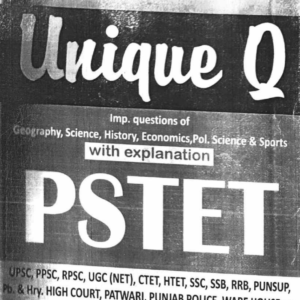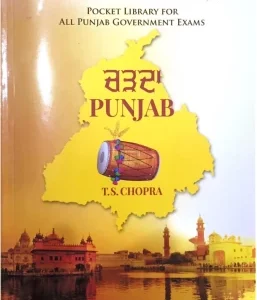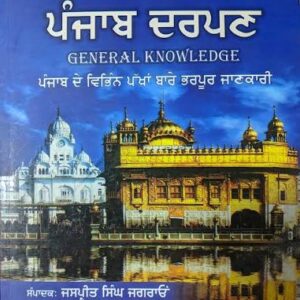Syllabus for pstet exam 2023
The questions in Syllabus for pstet Paper-I will be based on the topics of the prescribed syllabus of the State for classes I-V, but their difficulty standard, as well as linkages, could be up to the secondary stage.
Syllabus for pstet Paper I (for classes I to V) Primary Stage:
I. Child Development and Pedagogy for pstet Paper I: 30 Questions
a) Child Development (Primary School Child): 15 Questions
• Concept of development and its relationship with learning
• Principles of the development of children
• Influence of Heredity & Environment
• Socialization processes: Social world & children (Teacher, Parents, Peers)
• Piaget, Kohlberg, and Vygotsky: constructs and critical perspectives
• Concepts of child-centered and progressive education
• Critical perspective of the construct of Intelligence
• Multi Dimensional Intelligence
• Language & Thought
• Gender as a social construct; gender roles, gender bias and educational practice
• Individual differences among learners, understanding differences based on
diversity of language, caste, gender, community, religion, etc.
• Distinction between Assessment for learning and assessment of learning;
School-Based Assessment, Continuous & Comprehensive Evaluation: perspective
and practice
• Formulating appropriate questions for assessing the readiness levels of learners; for
enhancing learning and critical thinking in the classroom and assessing
learner achievement.
b) Concept of Inclusive education and understanding children with special
needs: 5 Questions
• Addressing learners from diverse backgrounds including disadvantaged and
deprived
• Addressing the needs of children with learning difficulties, ‘impairment’ etc
• Addressing the Talented, Creative, Specially abled Learners
c) Learning and Pedagogy: 10 Questions
• How children think and learn; how and why children ‘fail’ to achieve success in
school performance
• Basic processes of teaching and learning; children’s strategies of learning;
learning as a social activity; social context of learning.
• Child as a problem solver and a ‘scientific investigator’
• Alternative conceptions of learning in children; understanding children’s ‘errors’
as significant steps in the learning process.
• Cognition & Emotions
• Motivation and learning
• Factors contributing to learning- personal & environmental
II. Language-I (Punjabi): 30 Questions
a) Language Comprehension: 15 Questions
Reading unseen passages- two passages one prose or drama and one poem with
questions on comprehension, inference, grammar, and verbal ability (Prose
the passage may be literary, scientific, narrative, or discursive)
b) Pedagogy of Language Development: 15 Questions
• Learning and acquisition
• Principles of language Teaching
• Role of listening and speaking; function of language and how children use it as a tool
• Critical perspective on the role of grammar in learning a language for communicating ideas verbally and in written form
• Challenges of teaching language in a diverse classroom; language difficulties, errors and disorders
• Language Skills
• Evaluating language comprehension and proficiency: speaking, listening, reading and writing
• Teaching-learning materials: Textbook, multi-media materials, multilingual resource of the classroom
• Remedial Teaching
III. Language- II (English): 30 Questions
a) Comprehension: 15 Questions
Two unseen prose passages (discursive or literary or narrative or scientific) with
questions on comprehension, grammar, and verbal ability
b) Pedagogy of Language Development: 15Questions
• Learning and acquisition
• Principles of language Teaching
• Role of listening and speaking; function of language and how children use it as a tool
• Critical perspective on the role of grammar in learning a language for communicating ideas verbally and in written form;
• Challenges of teaching language in a diverse classroom; language difficulties, errors and disorders
• Language Skills
• Evaluating language comprehension and proficiency: speaking, listening, reading and writing
• Teaching-learning materials: Textbook, multi-media materials, multilingual resource of the classroom
• Remedial Teaching
IV Mathematics: 30 Questions
a) Content 25 Questions
• Geometry
• Shapes & Spatial Understanding
• Numbers
• Addition and Subtraction
• Multiplication
• Division
• Measurement
• Weight
• Time
• Volume
• Data Handling
• Patterns
• Money
• LCM &HCF
• Decimal
• Fractions
b) Pedagogical issues: 5 Questions
• Nature of Mathematics/Logical thinking; understanding children’s thinking and reasoning patterns and strategies of making meaning and learning
• Place of Mathematics in Curriculum
• Language of Mathematics
• Community Mathematics
• Evaluation through formal and informal methods
• Problems of Teaching
• Error analysis and related aspects of learning and teaching
• Diagnostic and Remedial Teaching
V Environmental Studies: 30 Questions
a) Content: 25 Questions
• Environment
• Relation and Care: Plants and Animals, Work and Play
• Our Internal Organs
• Care of Organs
• Weather and Climate
• Our Land Forms
• Crops: Our Food – From Field to Home
• Shelter: Buildings in the Community
• Clothes and their Care
• We Celebrate
• Recreation in the Locality
• Diseases
• First Aid
• Role of Local Agencies and an Individual in Health Care
• Advancement in Transport and Communication
• Road Safety Rules
• Pollution
• Our Natural Resources
• Water
• Care of Our Surroundings
• Man and Natural Disasters
• Learning by Doing
• Solid Waste Management
• Your Currency
b) The questions in Paper-I will be based on the topics of the prescribed
syllabus of the State for classes I-V, but their difficulty standard, as well as linkages could be up to the secondary stage.
c) b) Pedagogical Issues: 5 Questions
• Concept and scope of EVS
• Significance of EVS, integrated EVS
• Environmental Studies & Environmental Education
• Learning Principles
• Scope & relation to Science & Social Science
• Approaches of presenting concepts
• Activities
• Experimentation/Practical Work
• Discussion
• CCE
• Teaching material
• Problems
Download PStet Exam syllabus pdf Click here
Best Book For pstet




